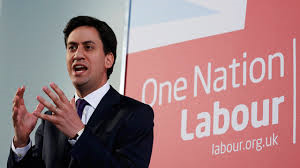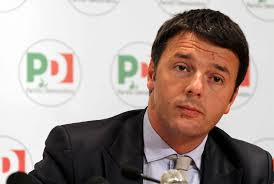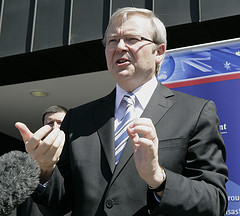A Battle for Morena’s Soul: Mexico’s Ruling Party’s Chaotic Leadership Election
One of the great surprises of the 2018 Mexican election was not the largely predicted landslide victory of Andrés Manuel López Obrador but the commanding performance of his political party, Morena. In just its second federal election, Morena won a vast legislative majority in the federal Congress and control of state governments across the country. The party was a relative newcomer on the scene— it was founded just 5 years prior as a civic project of the left. However, in the run-up to the 2018 election, the party ballooned in size, absorbing members from across the political spectrum. Still, Morena was able to present itself as a fairly unified front in the 2018 election. However, in the past few months, the once latent internal …

Ed Miliband’s Labour and ideology. Did New Labour change the party forever?
In 2010, Ed Miliband inherited a party troubled by tensions and confusion. After three electoral victories and 13 years in office, New Labour had lost its appeal due to the legacy of the Iraq war, a series of burning scandals and endless backbenchers’ rebellions. Blair had resigned in 2007, replaced by his eternal rival Gordon Brown, with many of those within Labour seeing him as more traditionally left-wing and able to rescue the party from its decline. Yet, the 2008 financial crisis had promptly interrupted Brown’s brief honeymoon with the electorate and Labour had lost the 2010 General Elections, leading to a Conservative-Lib Dem coalition government. Ed Miliband, a young Brownite, then won a bitter leadership contest, in which the main adversary was his brother David, one of Blair’s closest advisors. Ed obtained the support of most of the Unions and of many social-democrats who had at some point started to despise the Blairite model, examples being Roy Hattersley and Neil and Gladys Kinnock. He did so by differentiating himself from the previous leadership, declaring that New Labour was over and running a quite leftist campaign.
Four years later, many question what the current leadership actually stands for and whether Labour has witnessed an authentic ideological revision. On the one hand, Miliband launched the new slogan ‘One Nation Labour’, inspired from a famous Disraeli’s speech, which has been praised as an attempt to revitalise socialism in the context of the current economic crisis, as well as criticized for flirting with rightward doctrines such as compassionate conservatism. On the other hand, he has often declared his preference for an open and pluralist model of leadership and defended the value of a lively internal debate. Therefore, despite describing himself as ‘a European social-democrat who takes inequality very seriously’, Miliband has witnessed and even promoted the rise of a number of ideological sensibilities.
Party factions, think-tanks and research institutes defending sometimes very different positions, such as Progress, Compass, Tribune or Briefing, all contributed to this lively debate.

Matteo Renzi’s PD eight months later: where now for the Italian left?
Leading the Italian left has never been an easy task. After the collapse of democratic centralism (i.e. the Leninist practice which obliged the membership to uphold any leader’s decision following an internal discussion), leadership has soon become the Achilles’ heels of the Italian former communists. Party secretaries have been weakened by the rising power of internal factions, used as scape-goats after electoral defeats and blamed for both lack of charisma (Pierluigi Bersani) and excessive protagonism (Massimo D’Alema and especially Matteo Renzi himself).
Moreover, the presidential leadership style of its eternal enemy, Silvio Berlusconi, made the Italian PD (Democratic Party) rather unenthusiastic toward the trends of personalisation and presidentialisation spreading all over Europe. It is not by chance that the Berlusconian model always comes up when discussing Renzi’s personality and politics. Internal opponents and critical observers denounce Renzi’s simplified language and slogans, as well as his post-ideological appeal and charismatic governance. He is even often described as the son of Berlusconi, in the same way that Tony Blair was once called the son of Thatcher.
Albeit controversial, Renzi’s personalized approach seems to have played a key-role in his rise to power. Studies conducted among the delegates at the 2013 Party Conference show that the party’s majority backed him in virtue of his personal characteristics and leadership skills rather than political message. Moreover, whereas the 2012 delegates expected the at-that-time-leader Bersani to promote a process of identity reconstruction and grassroots’ institutionalization, the 2013 Conference asked Renzi for concrete strategies to win the next General Elections (Martocchia Diodati 2014).

Kevenge! How Not To Choose a Political Party Leader
The revolving door at the top of the Australian Labor Party continues to spin, with ex-Foreign (and Prime) Minister, Kevin Rudd, challenging the current Prime Minister, Julia Gillard, for her job on Monday morning. Three things are notable about this challenge: its speed (Rudd formally announced his intention to stand on 24th February and the ballot will be held on the 27th); its ferocity (military metaphors like ‘mutually assured destruction’ scarcely seem overblown); and the fact that Rudd was ousted from the PM job only twenty months ago. Ms Gillard should win convincingly. Although 58% of Australians think that Rudd would make a better leader, Gillard’s parliamentary colleagues support her by a ratio of two to one. Mr Rudd’s deep unpopularity amongst …









